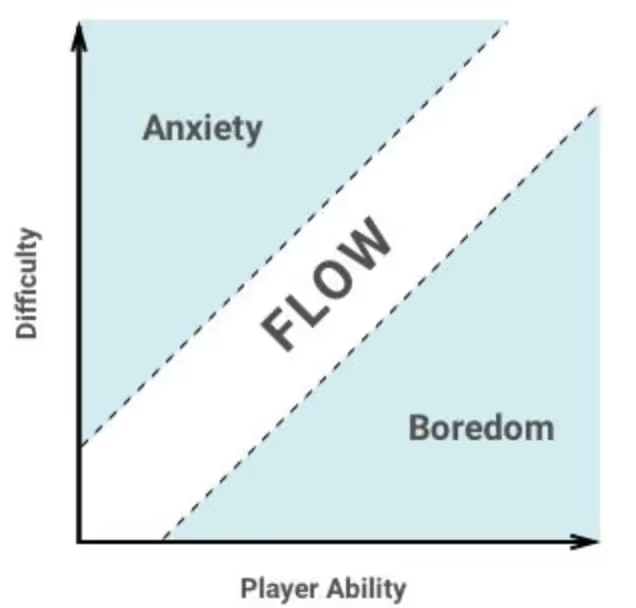I’ve been immersed in the world of sports my entire life, and even before the term “flow state” became commonplace, I was witnessing and experiencing it firsthand. From the legendary Tom Brady's clutch fourth-quarter comebacks to Tiger Woods' dominance on the golf course, Wayne Gretzky’s unparalleled scoring prowess, and Lionel Messi’s magical performances on the soccer pitch, these athletes epitomized the flow state. Whether you're a seasoned pro or a casual participant, you've likely encountered this state of heightened awareness and peak performance. It's that feeling where time seems to stand still, and you're utterly unstoppable.
As a Physical Therapist working with athletes in Wilmington, understanding the concept of flow state is crucial. This heightened state of consciousness, characterized by a sense of effortless action and heightened awareness, is a key factor in athletic performance. By helping athletes achieve and maintain flow state, physical therapists can optimize their recovery, enhance their performance, and prevent injuries. Through targeted exercises, mental training techniques, and injury prevention strategies, we can guide athletes towards a deeper understanding of flow state, empowering them to reach their full potential.
To harness the power of flow state and optimize athletic performance, it's essential to dive deeper into its key characteristics. By understanding the fundamental elements that define flow state, athletes can develop the mental and physical conditions necessary to achieve this peak state of consciousness.
What is Flow state:
Flow state, also known as being "in the zone," is a psychological state where a person is fully immersed in an activity and feels a sense of effortless concentration and enjoyment. It's a state of optimal performance where a person is so focused on the task at hand that they lose track of time and external distractions.
The two most important components of flow state are the amount of boredom and anxiety, which are determined by the difficulty of the task and the athlete's skill level.
- Boredom: If a task is too easy, it can lead to boredom and a lack of engagement. This can hinder performance and prevent athletes from entering flow state.
- Anxiety: If a task is too difficult, it can lead to anxiety and stress, which can also impair performance. When athletes feel overwhelmed or out of their comfort zone, it's difficult to achieve

- The ideal balance between boredom and anxiety is where the task is challenging but achievable. This is when athletes are most likely to experience flow state. The sweet spot is where the athlete's skills match the demands of the task, creating a sense of challenge and engagement without overwhelming them with anxiety.While boredom and anxiety are the most crucial factors, other key characteristics also contribute to achieving flow state.Key characteristics of flow state include:
- Complete absorption: Being fully engaged in the activity and forgetting about everything else.
- Loss of self-consciousness: Feeling a sense of oneness with the activity and losing awareness of oneself as a separate entity.
- Distorted sense of time: Time seems to pass quickly or slowly depending on the activity.
- Effortless action: The activity feels natural and effortless, requiring minimal conscious thought.
- Clear goals: Having clear objectives and knowing exactly what needs to be done.
- Immediate feedback: Receiving constant feedback on one's performance, allowing for adjustments and improvements.
- Balance between challenges and skills: The activity should be challenging but not overwhelming, requiring the person to use their skills to their full potential.
- Positive emotions: Experiencing feelings of joy, excitement, and satisfaction.
- Create the right atmosphere:
- Find a quiet space: This could be a room in your home, a park, or even your car.
- Choose your audio: Some athletes prefer silence, while others find music to be helpful. Experiment to see what works best for you.
- Visualize the warm-up:
- Imagine yourself going through your pre-game routine, step by step.
- Feel the sensations of your body moving, the weight of your equipment, and the warmth of your muscles.
- Visualize the start of the game:
- Picture yourself on the field or court, ready to compete.
- Feel the excitement and adrenaline coursing through your body.
- Visualize the move, skill, or action:
- Choose a specific play or technique that you want to focus on.
- Imagine yourself executing it perfectly, with precision and confidence.
- Pay attention to the details: Visualize the exact movements, the feel of the ball or equipment, and the sounds of the game.
- Repeat step 4 multiple times:
- The more you visualize, the stronger the neural pathways will become.
- Try to make your visualizations as vivid and detailed as possible.
- End with affirmations of success:
- Repeat positive affirmations to yourself, such as "I am confident in my abilities," "I will perform at my best," or "I am a champion."
Dr. Evan Langley DPT, PT, CSCSPerformance Physical TherapistConquer Movement - Wilmington, NC

